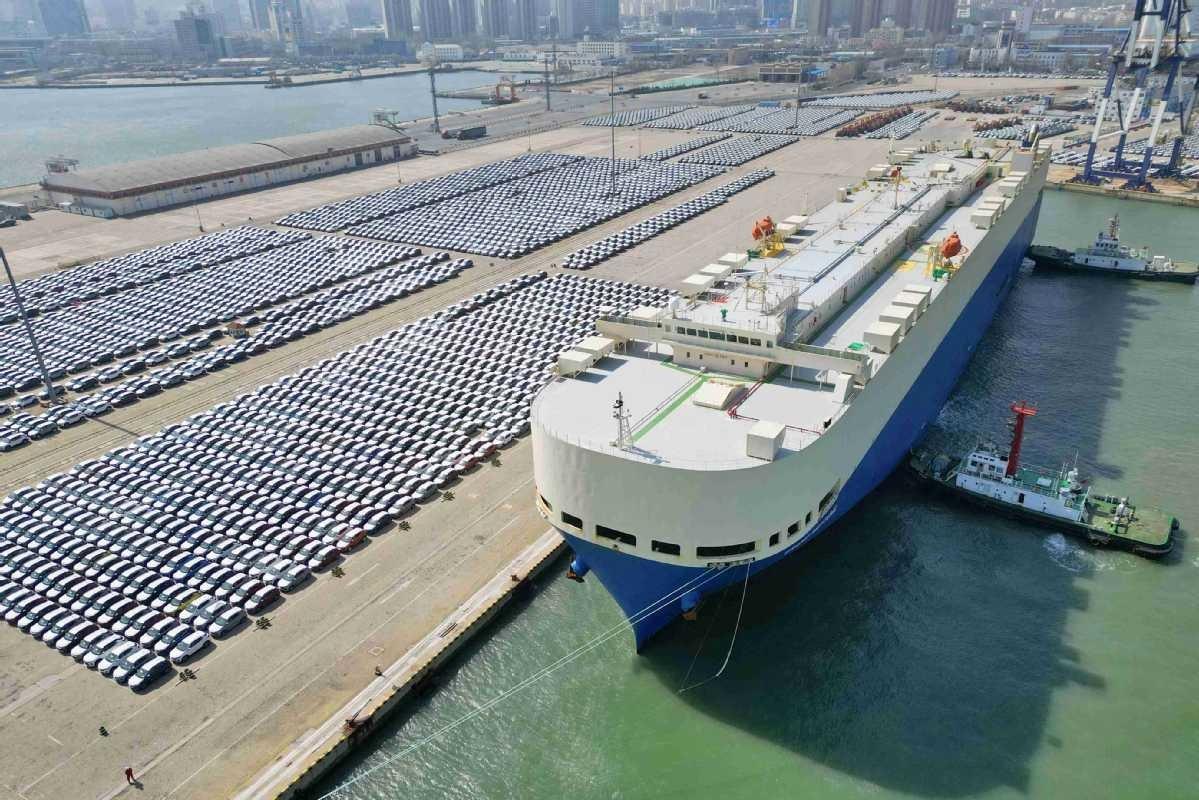 A cargo ship is ready to load cars for export at Yantai Port in Shandong province on March 14, 2023. (TANG KE / FOR CHINA DAILY)
A cargo ship is ready to load cars for export at Yantai Port in Shandong province on March 14, 2023. (TANG KE / FOR CHINA DAILY)
China has asked the United States to correct its discriminatory measures — which will exclude Chinese electric vehicles and relevant products from obtaining tax credits from next year — in line with World Trade Organization rules, the Ministry of Commerce said on Thursday.
The US has rolled out specific steps that discriminate against Chinese EV businesses and remove their products from the subsidy's purview, which is typically nonmarket oriented, He Yadong, a spokesman for the ministry, said at a news conference.
Such acts violate the basic principles of the WTO, stifle international trade and investment, and undermine the stability of the global industrial and supply chains, He said.
China, he added, will continue to assess the implementation of US measures and take necessary actions to safeguard its legitimate rights and interests.
Highlighting that perfect competition is key to technological advances in the EV industry, He said the US should respect market principles, strictly adhere to WTO rules, correct discriminatory subsidy practices, and create a fair, just and nondiscriminatory business climate.
Meanwhile, the ministry also called on the European Commission, which decided to launch an anti-subsidy probe into Chinese EVs in October, to abandon its trade protectionist act, and deepen trade and investment cooperation between the automobile industries of China and Europe.
Noting that the countervailing duty investigation from Europe lacks sufficient evidence, He stressed that China is strongly opposed to the probe, and that many member states in the European Union have also questioned it, as they believe the protectionist measures will be counterproductive.
China looks forward to the commission's efforts to promote mutually beneficial and win-win development, and create a favorable environment for both sides to jointly respond to climate change and achieve green transition, He added.
The negative impact of these discriminatory or protectionist trade policies goes beyond China's EV industry, and will only result in self-inflicted disruptions to automotive supply and higher prices in the US and EU, as well as harm local manufacturers' ability to compete, said Mei Xinyu, a researcher from the Chinese Academy of International Trade and Economic Cooperation.


